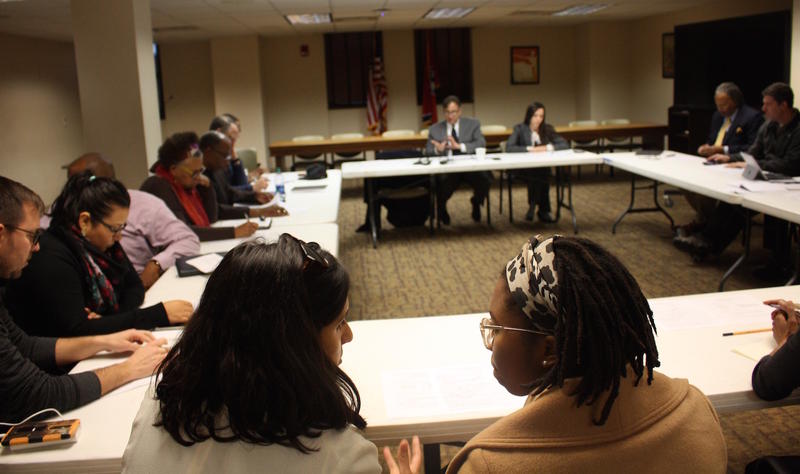
Nashville’s Community Oversight Board will soon have fewer members with experience as police officers.
Two former officers are exiting the board, and no one from law enforcement applied to take their places (one former officer withdrew his nomination).
Instead, the Metro Council filled three board positions on Tuesday with nominees who come from backgrounds in advocacy, community organizing and the arts. Nashville voters created the board in a 2018 referendum. Its role is to review allegations of police misconduct and to make recommendations about policing and police-community relations.
Interest in joining the oversight board was much lower this time than when it was first created in early 2019. More than 150 people were considered for the initial 11 spots, and the council needed multiple voting rounds over about five hours to make selections.
This time, only six people qualified for the three openings, and the council needed just one simple vote to make their picks.
Among those chosen was Ashlee Davis, who is being reappointed after serving as chairwoman of the board. In that role, she led the group in selecting an executive director — who later abruptly resigned — and during tense talks with the city police department.
“The COB has looked the impossible in the face each time and found cause to keep pushing for the people of Nashville,” Davis wrote in her application.
Davis is a seventh-generation Nashvillian and a vice president at AllianceBernstein, where she is the diversity and inclusion senior manager.
The council’s top vote-getter was O. Timothy Hughes, a Fisk University graduate who currently works for the Black Voters Matter Fund.
In his application, Hughes said he is the son and grandson of law enforcement officers and that he wants the board to act a mediator between police and the community.
The council also selected local writer, theater director and literacy teacher Shawn Whitsell. He noted in his application that he has taught a creative writing class for Metro police cadets.
Nashville’s oversight board remains as diverse as it began, as eight of 11 members are persons of color. It will now be weighted more toward men, who occupy seven board positions.

